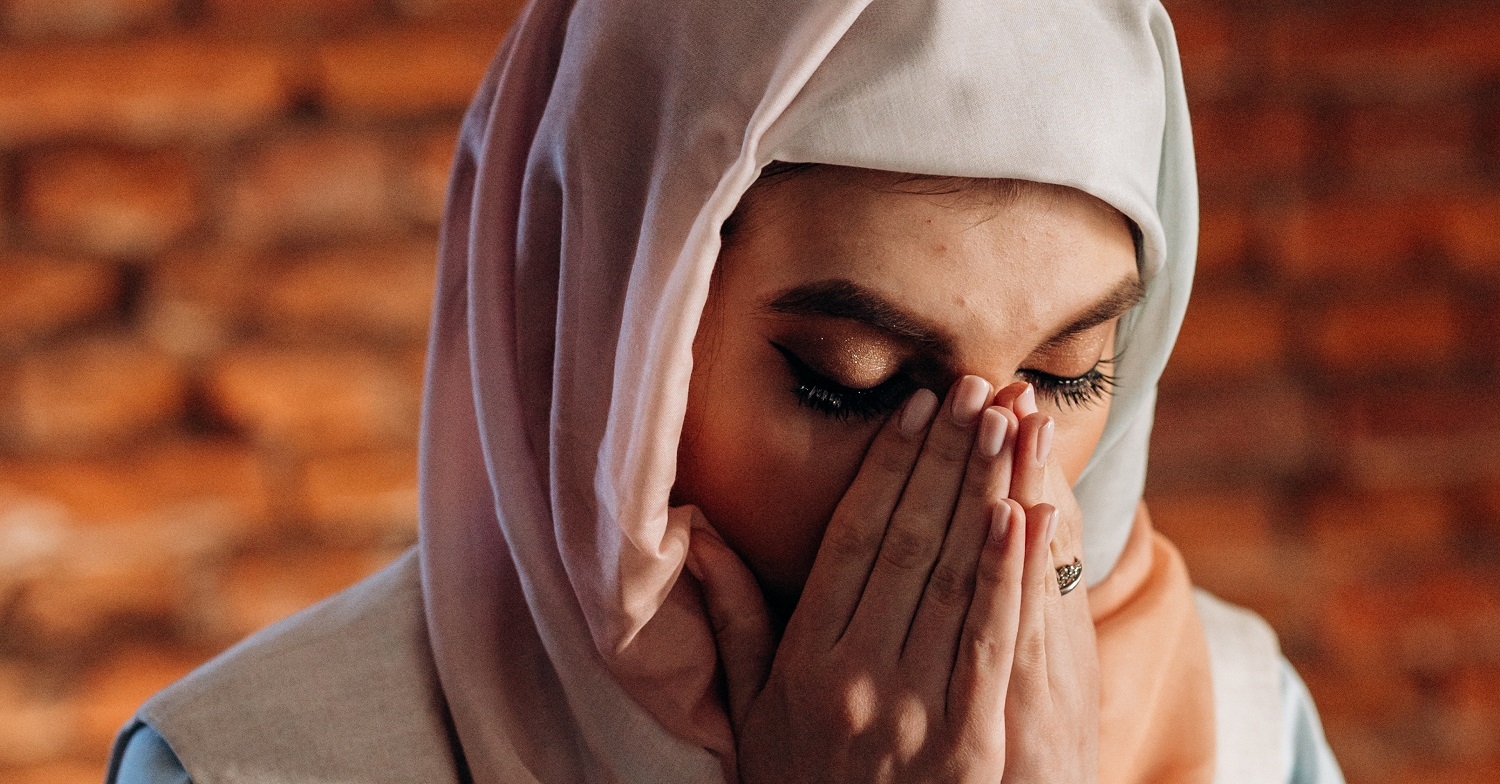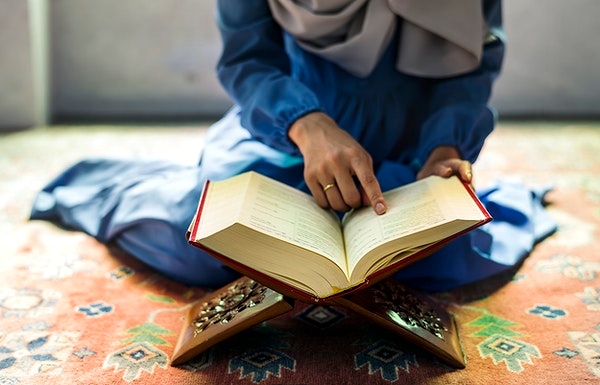What is Iddah? Why (and How) Must We Observe it? A Quick Breakdown
Faith
|
May 26, 2022
|
8 MIN READ

Image source: Monstera by Pexels
It may sound fatalistic, but relationships invariably end, even the most loving ones. One spouse will sadly die or the marriage will run its course to its demise. The end of a committed partnership is one of the realities of the life of this world.
Allah (S) says:
"Know that this worldly life is no more than play, amusement, luxury, mutual boasting, and competition for wealth and children. This is like rain that causes plants to grow, to the delight of the planters." [Surah Hadid, 57:20]
The life of this world is not meant to permanently satisfy our deepest longings and needs, and neither are the people who live in it with us. This is why it’s so important for women to understand what iddah is.
What is Iddah?
In Islam, iddah (from the word ‘to count’) is a prescribed waiting period for a woman after the death of her spouse or a divorce. Whether the marriage ends due to death or a split, the widow or divorcee will endure a set amount of time to grieve and process the end of the relationship and the catastrophic change to her life.
During this period, a woman is required to stay home and not venture out except for necessities as determined by individual circumstances (like work, attending to her needs or the needs of her dependents, medical visits, etc.). There is a lot of information out there about what is and isn’t allowed during a woman’s iddah period, and I recommend doing your research, as there are entire books and papers written about iddah.
The iddah period itself differs according to the circumstances surrounding the ending of a marriage. Let’s take a brief look at the basic iddah time frames.

Image source: Edmond Dantès for Pexels
1. Iddah due to death*: A woman has to observe iddah for four lunar months and ten days on the death of her husband irrespective of her age or if the marriage was consummated or not.
2. Iddah due to divorce*: The iddah of menstruating women ends after three menstruations. Women who do not menstruate (for whatever reason) observe an iddah of three months.
3. Iddah of pregnant women*: The iddah of a pregnant woman is up to the time of delivery or miscarriage (only if the limbs of the embryo had formed,) whether the iddah is due to death, divorce or any form of separation.
In the case of divorce, the reasons for the length of the marriage and reasons for its dissolution are plentiful, and menstruation can be complex and individual. So, it is important for women to research and consult qualified spiritual leaders to determine their iddah length.
So, why iddah? Allah prescribed a waiting period for women under the above circumstances. But why was it prescribed?
For widows, Allah (S) says:
“As for those of you who die and leave widows behind, let them observe a waiting period of four months and ten days.” [Surah al-Baqarah, 2:234]
For divorced women, Allah (S) says in the Quran:
“Divorced women must wait three monthly cycles ˹before they can remarry’. It is not lawful for them to conceal what Allah has created in their wombs,1 if they ˹truly˺ believe in Allah and the Last Day. And their husbands reserve the right to take them back within that period if they desire reconciliation.” [Surah al-Baqarah, 2:228]
“As for your women past the age of menstruation, in case you do not know, their waiting period is three months, and those who have not menstruated as well. As for those who are pregnant, their waiting period ends with delivery. And whoever is mindful of Allah, He will make their matters easy for them.”

Image source: Pexels
Scholars conclude that the primary reason for iddah in the case of widows and divorced women is to make sure she is not pregnant with her former spouse’s child, and Allah (S) knows best. If pregnancy is established, the timing of the iddah shifts to when she has the baby.
Women in iddah also wait and refrain from entering into any new marital contracts during that time, allowing widows to grieve their spouses and divorced women the death of their relationships.
Ultimately, iddah is time that may come with a lot of pain and stress for a woman to endure. Being a wife may have been her central identity for a long time, and now it's over. She no longer has the partner she may have depended on. Her social and financial statuses may also change. During those emotional ups and downs, it is important to look after oneself in a variety of ways.
Have a Support System
Although divorces or how we lose our spouse are all unique, most of us will have to endure emotional gambits that may include those similar to the stages of grief: shock, denial, pain, guilt, anger, bargaining and depression. You may feel like you must carry the burden of heartache on your own, but you don’t.
First, turn your pain over to Allah (S). Seek His (S) mercy. The Creator (S) does not put a burden on a soul greater than it can bear (Surah al-Baqarah, 2:286), and He (S) is there to hear our call at all times. Allah (S) says:
"And when My servants ask you, [O Muhammad], concerning Me - indeed I am near. I respond to the invocation of the supplicant when he calls upon Me. So let them respond to Me [by obedience] and believe in Me that they may be [rightly] guided." [Surah al-Baqarah, 2:186]

Image source: Pexels
Connecting with Allah (S) through prayer, du’a, dhikr and reading Quran can provide the best solace in times of trial. Turn deeper into remembering your Lord (S) during your iddah. If you feel like you haven’t been the best Muslim, don’t let it stop you from turning to Allah (S). He (S) is always ready to turn to his servants.
A well-rounded support system that may include friends, family or a spiritual leader can help you process the pain and insecurities. A support system can be essential as you go through the iddah period so that you won’t feel alone during this life-altering change and the torrent of emotions that come with it. Spending time with people can help you avoid being alone with a bunch of negative thoughts and “what ifs.” They will motivate you to switch your focus and think better about yourself and your ability to process the pain.
Structure a support system by spending time with trusted family members and friends. You want to hang out with people who will remind you of Allah’s (S) mercy and offer you love, motivation and encouragement during the iddah.
You may also want to find (if your iddah is due to divorce) a support group of people who have gone through a divorce. Support groups may offer a chance for you to speak openly and honestly about your feelings to people who are more likely to get what you’re dealing with because they are dealing with it themselves. Often, hearing someone else’s journey can help you manage your divorce. Weigh the pros and cons of joining a support group and look for one that is either person-to-person or online.
Talking with a professional may also be an integral part of your support system. A professional divorce counselor helps you understand the loss you’re undergoing and may teach you coping skills. If you choose to include a counselor in your support system, conduct thorough research. Learn about what divorce counseling entails and find a therapist/counselor who will provide the optimal therapy for you to get through this.
Engage in Self-Love and Self-Care

Image source: Pinterest
The end of a marriage is full of spiritual and emotional turmoil, making it hard for a person to love and appreciate themselves, let alone take care of their bodies and overall well-being. During your iddah, you may have increased negative thoughts and self-deprecation. You may also ignore your body’s needs. It is crucial to practice self-love and self-care.
Loving yourself involves self-reflection and developing a positive inner dialogue that will encourage you to value who you are, your thoughts and your emotions. During this trying time of iddah, you will want to purposefully shift from any negative self-judgment and focus on nurturing your mindset and emotions. You want to learn to love yourself again without a partner, wasn’t a focus of yours before you lost your partner. If you feel like you don’t know who you are (and many of us don’t), reacquaint yourself with yourself by highlighting your positives. You will also want to spend time and energy caring for yourself mentally and physically.
Islam teaches us to take care of our bodies and to engage in individual and communal activities that will promote spiritual, mental and physical health, all hallmarks of self-care. Taking care of oneself can be challenging during iddah. With shock and awe and subsequent depression that usually accompanies the finality of a relationship, it seems almost impossible not to wallow in the hurt and neglect ourselves. At this time, self-care and taking care of one’s body and mind are essential to preserving past the turbulence.
The primary objective of self-care is to preserve your overall well-being through acts that will benefit you mentally and physically. Work on building a healthy foundation during your iddah. Five basic things you can do to get started are:
1. Get enough sleep and establish a sleep schedule.
2. Eat a balanced, healthy diet and include nutritious foods that will benefit you physically and emotionally.
3. Concentrate on your hygiene. If you’ve been wallowing in the same clothes, shower and change them. Make sure to groom your hair and brush your teeth.
4. Get active. Take a walk, bike ride, head to the gym or hit play on an exercise video. Exercise can improve your mood, boost energy and promote healthy sleep. Consult your doctor and get moving the healthiest way for you.
5. Revive your spirit. Iddah is an emotional rollercoaster with overwhelming thoughts about the past and worries about the future. Find spiritual balance through worship and meditation.
6. Relax your body and mind. I know, easier said than done. Start off by engaging in relaxing activities. Read a book, take a stroll, talk with a friend, or play with the kids. Decide on what you find relaxing and do it.
Mourn the End

Image source: Pexels
Allow yourself to grieve the loss of your partner. This can be particularly difficult with divorce, where the marriage dies but not the partner. (As harsh as that sounds, I know you understand what I mean) You’ll experience the same pain of loss but the ex-partner may still be a part of your life in some capacity.
During iddah (whether from death or divorce), you may experience feelings of sadness, anger, guilt, regret and resentment and helplessness. Don’t stuff them down. Embrace your feelings and try your best to work through them.
In the case of divorce, look at your marriage for what it was and what you’ve gained and learned from it. During iddah, a couple can spend time examining the issues that caused the divorce and deciding if they want to fight to be together. So, make du’a to Allah (S) for the two of you to reconcile or have an amicable separation depending on the situation and what is better for the both of you.
Although the iddah period is fixed and temporary, the pain you experience from loss of your spouse, through death or divorce, is not. The agony can be deeply-rooted and persistent, coming in waves of suffering at any given moment. I think naming and acknowledging our pain is the first step to managing it and, Insha’Allah, moving past it. May Allah (S) be with you.
Have you gone through iddah? How did was it for you? Share with us in the comments below.
Subscribe to be the first to know about new product releases, styling ideas and more.
What products are you interested in?

